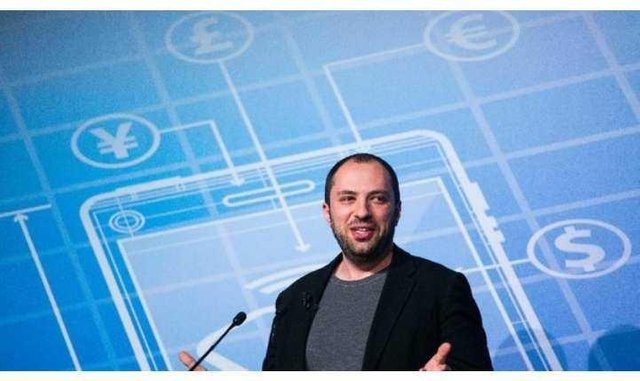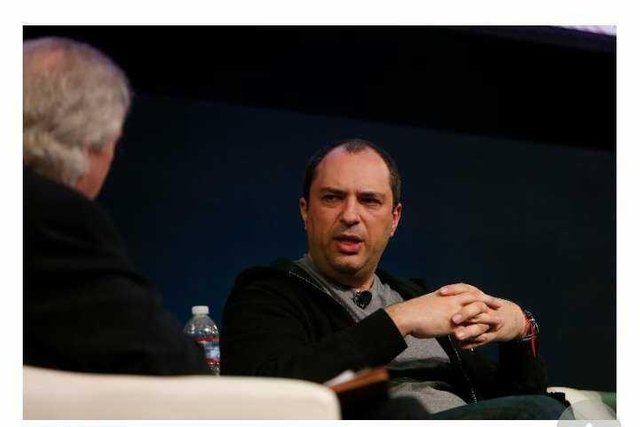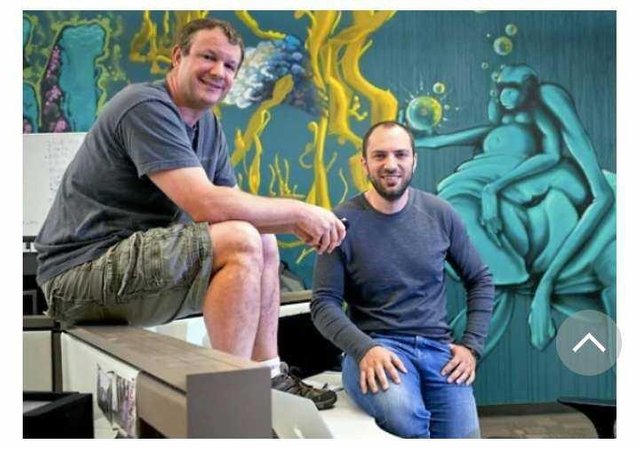Indonesia- Jan Koum's decision to leave WhatsApp is surprising. How not, instant messaging service that pioneered this has brought up his name and make it rich. It's interesting to listen again to Koum's gameplay on WhatsApp.

It's no exaggeration to say WhatsApp is a phenomenal messaging service. Born in 2009, the pace of WhatsApp is difficult to stop. It seems almost all smartphone users today use WhatsApp to communicate.
WhatsApp is not the first messaging service, but some of the advantages and innovations make it fast racing. Simply by phone number, users can add contacts. WhatsApp is also easy to use and free of annoying ads.
No wonder if in April 2015, WhatsApp users declared through 800 million. It makes it the most popular messaging service today, used by users across generations. And no wonder also if Facebook would buy WhatsApp with the price so expensive, USD 19 billion.
WhatsApp is the brilliant idea of duets Brian Acton and Jan Koum. Jan Koum's pretty tortuous story seems worth listening to as an inspiration. In his relatively young age, he has achieved everything thanks to WhatsApp.
Koum, now 39, was born and raised in a village in Ukraine, a country in Eastern Europe that is currently stricken by a political tempest. His father is a construction manager and his mother is not working.
At that time, Ukraine was also hit by political turmoil. Life is not easy for the Koum family, especially those of Jewish descent. Koum's parents rarely use the phone for fear of being tapped and can be bad. Not much to do at that time. The facilities in the village are also pickup.
"My school does not have a bathroom in. Imagine the piercing winter in Ukraine, the weather is minus 20 degrees Celsius, the children have to queue outside to use the bathroom," Koum recalled.
Migrate to the United States
In 1990 when Koum was 16, he and his mother immigrated to Mountain View, USA. The move is seen as safest as political turmoil and anti-Jewish movements get bigger in Ukraine.
His father plans to follow soon, but unfortunately never accomplished. He died in 1997.
In the United States, Koum and his mother did not necessarily improve. They are still short of life. Her mother works as a babysitter and Koum sometimes sweeps the shop for a living wage.
So poor they have to live with government subsidized food. They live in a two-bedroom apartment that is also financed by the US government. The ordeal came after Koum's mother was diagnosed with cancer. The mother eventually died in 2000.
Naughty Boy But Smart#
Koum since teenagers are able to speak English well to make it easier for schools in the US. But perhaps because of her lack of adaptability, she is known as a bad boy at school and often gets into fights. His great high posture helped him defend himself.
Though stubborn, Koum is a smart kid. At the age of 18 years, he was initiative to learn computer networking self-taught. He also joined the hacker club nicknamed w00w00.
After graduating from high school, Koum was accepted at San Jose State University. While in college, he worked odd jobs in several places, among others, as a test of security systems at Ernst & Young.
One day in 1997, he met with Brian Acton who was then a Yahoo employee. The two eventually became close friends. Koum iseng applying for work to Yahoo and he was accepted as an infrastructure technician.
When received at Yahoo, Koum is still in college. At one time, Yahoo's server was broken, but Koum was still in the classroom following the lecture. He was suddenly called by David Filo, one of Yahoo's founders who asked for help.

"What are you doing in class? Hurry to go to the office," Filo orders that do not care Koum is in college. At that time, the team of Yahoo technicians was still small so everyone was deployed.
Koum undertakes Filo's request. After the incident, he decided to drop out lecture entirely and focus work. "Besides, I hate going to school," he said.
Denied Facebook
After his mother died in 2000, Koum became an orphan. Koum felt lonely. Luckily, he continues to be supported by Acton. They have become best friends.
"He often invited me to his house," Koum said. They often do activities together.
Together with Koum and Acton witnessed Yahoo's ups and downs, where they work. Acton had also invested in internet companies in the 2000s, but reaped major failures and losses.
While working at Yahoo, Koum had worked on the ad project and he hated it. "Managing the ads is depressing, you do not make a person's life better with advertising," he said. Maybe this is the reason WhatsApp is ad-free.
September 2007 with various considerations, Koum and Acton agreed to leave Yahoo. For a year, they have fun and travel to South America.
Then both apply for work on Facebook. Unfortunately, both received rejection. Though one day, their products are so popular Facebook and purchased trillions of rupiah.
WhatsApp pioneered
In January 2009, Koum bought the iPhone. He then realized the App Store app store would be a great business. Suddenly he had an interesting idea.
One day, he gathered at the man's residence named Alex Fishman, where every week, the Russian community gathered there. Koum chatted about his raw idea of whatsApp's forerunner.
"Jan showed me her contact address book on the phone and thought it would be cool to have status beside the individual name," said Fishman. The status will indicate whether the individual is busy, the battery is running low or is in the game.
Koum then finds the name of the program, WhatsApp sounds familiar like whats up sentence. A week later on February 24, 2009, Koum founded the company WhatsApp Inc. in California. The application was actually not made, but he's desperate to go on.
Koum spends his time coding to sync apps with cell phone numbers around the world. WhatsApp initial version was so. Nevertheless, the application is not perfect and often crashes. At launch, only hundreds of downloads, mostly friends of Fishman and Koum.
Gait Jan Koum, Passion Then Rich Rich Thanks to WhatsAppJan Koum and Brian Acton founded WhatsApp in 2009. Photo: special
Almost Surrender
Koum almost stopped in the middle of the road and intend to find a job only. However Acton prevented it, he saw the great potential of WhatsApp. "You're an idiot if you stop now, give it a few more months," Acton said at the time.
Koum went on despite hesitation. The help then came from Apple which launched push notifications in Junia 2009. This feature allows Koum to modify WhatsApp so that every time the user changes the status, automatically communicate to everyone on the network.
"WhatsApp then becomes instant messaging," said Fishman. Jan realized he had created WhatsApp as a new instant messaging from before only intended as an application for status updates in contacts
At that time, a popular messaging service that became a competitor only BlackBerry Messenger (BBM), but the weakness is limited to only be used on BlackBerry. Koum then released WhatsApp 2.0 with messaging features and the number of users rose to 250 thousand.
WhatsApp potential makes Acton more interested. He managed to withdraw funding from five ex-Yahoo employees for $ 250,000. Acton also joined officially and with Koum, they have WhatsApp shares up to 60%.
WhatsApp was then created for a variety of popular platforms including iPhone, Android and BlackBerry. They chose the paid application method and were finally able to reap USD 5000 income per month in early 2010.

In December 2009, WhatsApp for iPhone can be used to send photos. Then since then, the growth of WhatsApp users is unstoppable. Beginning of 2011, WhatsApp has entered the top 20 applications in the App Store United States.
Koum himself still seemed embarrassed embarrassed and do not want to publish WhatsApp excessively. "Marketing and the media make you not even focus on the product," said Koum.
Purchased Facebook
WhatsApp extraordinary success makes investors coming to invest. Finally Koum and Acton decided to receive funding worth $ 8 million from Sequoia.
In February 2013, the number of WhatsApp users has already reached 200 million and continues to grow. Sequia re-invested USD 50 million and makes WhatsApp worth USD 1.5 billion.
WhatsApp's extra potential can make Facebook and Google fight for their hand. Finally, the founders of WhatsApp agreed to buy up for USD 19 billion.
Koum can laugh out loud. His hard work and struggling life have led to the success of WhatsApp. Koum Wealth which has 45% of WhatsApp shares is expected to jump to USD 6.8 billion.
Although already purchased up, Koum promised WhatsApp will not change much. And no ads will be entered.
"There's nothing more personal than the communication you do with friends and family, and interrupting it with advertising is not the right solution," Koum said.
"After all, I grew up in a world with no advertising, no advertising in the communist Soviet Union," he added.
Thanks
Follow me @suhendra301061
So good post
Downvoting a post can decrease pending rewards and make it less visible. Common reasons:
Submit